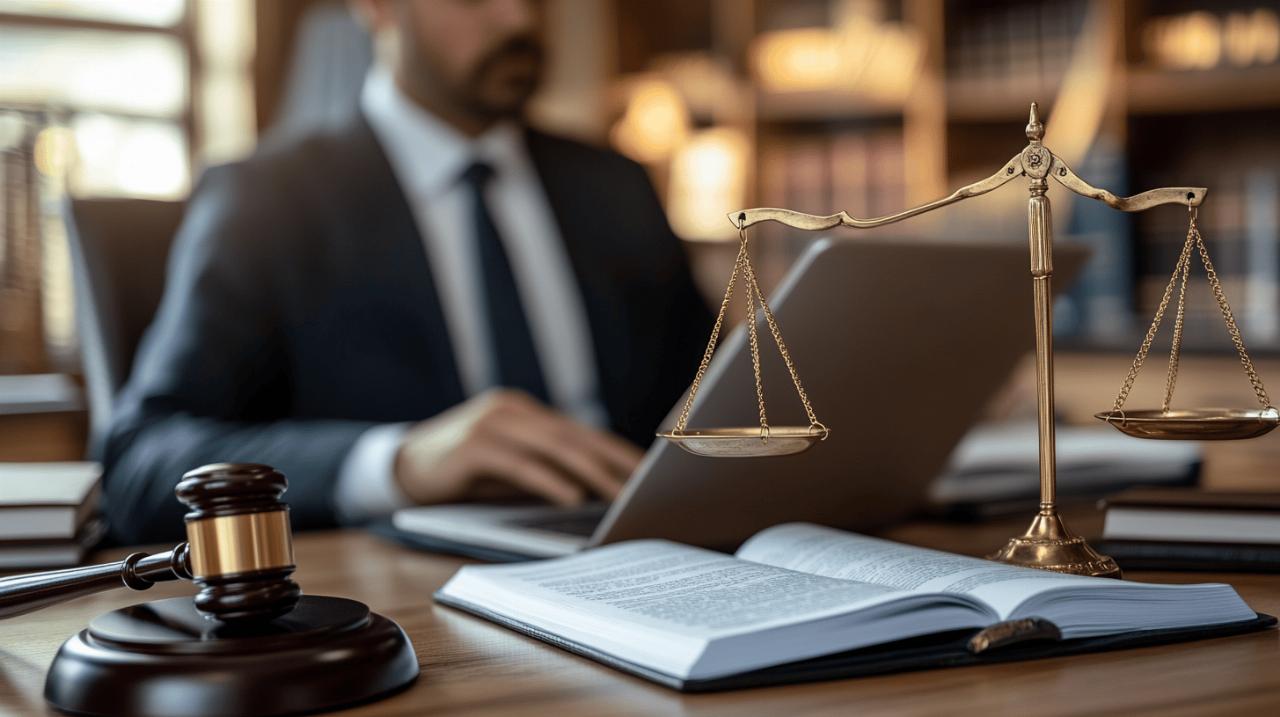Property disputes can be some of the most stressful and complex legal matters one might face, whether they involve ownership questions, boundary disagreements, or conflicts between landlords and tenants. Navigating such challenges requires not only a clear understanding of the law but also strategic guidance to protect your rights and interests. This is where a juriste steps in, offering expert legal support tailored to the unique circumstances of each case. Their role extends beyond simple advice, encompassing everything from drafting contracts to representing clients in negotiations and legal proceedings.
Understanding the Juriste's Role in Property Matters
What Exactly Does a Juriste Do in Property Law?
A juriste, often referred to as a legal professional or jurist, operates within the framework of property law to ensure that all actions taken are compliant with current legislation and regulation. Their responsibilities encompass a broad spectrum of tasks, from providing clear legal advice to managing the intricacies of property documentation. In the context of property disputes, a juriste interprets legal documents such as deeds, contracts, and settlement agreements, ensuring that their clients fully understand their rights and obligations. They also play a pivotal role in navigating the often complex legal procedures that accompany property conflicts, whether these involve boundary disputes, landlord-tenant disagreements, or co-owner conflicts. By offering strategic dispute resolution and managing the documentation process, a juriste ensures that every detail is handled with precision and care, reducing the risk of future legal complications.
The essential skills required for property dispute resolution
The effectiveness of a juriste in property matters hinges on a robust set of skills and competencies. A solid understanding of the legal system is paramount, allowing the juriste to stay abreast of changes in legislation and case law that might impact property rights. Analytical abilities are equally important, enabling the professional to assess complex situations, identify potential risks, and devise strategic solutions. Communication skills are also vital, as a juriste must convey legal concepts in a clear and accessible manner, ensuring that clients are fully informed throughout the process. Additionally, expertise in areas such as contract law, real estate law, and even aspects of tax law and social issues can prove invaluable when addressing the multifaceted nature of property disputes. This diverse skill set ensures that a juriste can handle everything from straightforward boundary issues to intricate commercial property conflicts with confidence and professionalism.
How a juriste safeguards your interests during property conflicts
Legal Advice and Strategic Guidance in Property Disputes
One of the primary ways a juriste protects your interests during property disputes is through the provision of tailored legal advice and strategic guidance. Understanding the nuances of property law is essential when facing conflicts, whether they concern ownership claims, leasehold disputes, or inheritance issues. A juriste helps clients navigate these challenges by offering expert insights into the legal landscape, interpreting relevant statutes, and advising on the best course of action. This guidance is particularly valuable when disputes involve multiple parties or complex commercial developments, where the stakes are high and the legal terrain can be difficult to navigate. By assessing the strengths and weaknesses of each case, a juriste can recommend whether to pursue negotiation, mediation, arbitration, or litigation, always with the aim of achieving the most favourable outcome for the client. This strategic approach not only helps to resolve disputes efficiently but also minimises the emotional and financial strain often associated with prolonged legal battles.
Drafting and Reviewing Property-Related Contracts and Documentation
Another critical function of a juriste in property disputes is the drafting and meticulous review of legal documents. Contracts, deeds, and settlement agreements form the backbone of property transactions and dispute resolutions, and any oversight or ambiguity in these documents can lead to further complications down the line. A juriste ensures that all contracts are comprehensive, clearly worded, and compliant with current legal standards, thereby safeguarding clients from potential pitfalls. This includes everything from conveyancing documentation to lease agreements and construction contracts. In cases where disputes arise over the interpretation of existing documents, a juriste's expertise in legal language and property law proves invaluable. They can identify inconsistencies, clarify ambiguous terms, and ensure that all parties understand their rights and obligations. By managing the documentation process with diligence and precision, a juriste helps prevent future disputes and provides clients with the confidence that their legal affairs are in order.
Collaborating with Solicitors and Legal Professionals
When a Juriste Works Alongside Solicitors in Complex Property Cases
 In many complex property disputes, a juriste works closely with solicitors to provide comprehensive legal support. While not all juristes are solicitors themselves, the collaboration between these professionals is essential when cases involve intricate legal issues or require court representation. Solicitors bring their expertise in litigation and advocacy, while juristes contribute their specialised knowledge of property law and their skills in legal research and documentation. This partnership ensures that clients receive well-rounded advice and representation, with each professional contributing their unique strengths to the case. For instance, in disputes involving commercial property or multiple ownership claims, a juriste might focus on the detailed analysis of contracts and legal documents, while the solicitor handles negotiations with opposing parties and prepares for potential court proceedings. This collaborative approach not only enhances the quality of legal services but also improves the chances of a successful outcome, whether through settlement negotiation or litigation.
In many complex property disputes, a juriste works closely with solicitors to provide comprehensive legal support. While not all juristes are solicitors themselves, the collaboration between these professionals is essential when cases involve intricate legal issues or require court representation. Solicitors bring their expertise in litigation and advocacy, while juristes contribute their specialised knowledge of property law and their skills in legal research and documentation. This partnership ensures that clients receive well-rounded advice and representation, with each professional contributing their unique strengths to the case. For instance, in disputes involving commercial property or multiple ownership claims, a juriste might focus on the detailed analysis of contracts and legal documents, while the solicitor handles negotiations with opposing parties and prepares for potential court proceedings. This collaborative approach not only enhances the quality of legal services but also improves the chances of a successful outcome, whether through settlement negotiation or litigation.
Navigating property law: the benefits of professional partnerships
The benefits of professional partnerships in property law extend beyond the immediate resolution of disputes. By working together, juristes and solicitors can offer clients a more holistic approach to legal issues, addressing not only the immediate conflict but also the broader implications for property ownership, estate planning, and business interests. This collaborative model is particularly beneficial in cases that involve multiple legal areas, such as disputes that intersect with family law, employment law, or regulatory compliance. The combined expertise of a juriste and a solicitor ensures that all aspects of a case are thoroughly examined and that clients receive strategic advice tailored to their specific circumstances. Moreover, this partnership can lead to more efficient and cost-effective dispute resolution, as the professionals can divide tasks according to their areas of expertise, avoiding duplication of effort and streamlining the overall process. Clients benefit from the assurance that their case is being handled by a team of knowledgeable and experienced legal professionals, each committed to protecting their interests.
Staying current: the juriste's commitment to legal excellence
Continuous professional development in property law
The legal landscape is constantly evolving, with new legislation, case law, and regulatory changes emerging regularly. For a juriste, staying current with these developments is not just beneficial but essential to providing effective legal services. Continuous professional development is a hallmark of the profession, requiring juristes to engage in ongoing education and training throughout their careers. This commitment to learning ensures that they remain well-versed in the latest legal trends and best practices, enabling them to offer clients the most up-to-date advice and strategic guidance. Whether through attending seminars, participating in professional networks, or pursuing advanced qualifications such as a Master's degree in law or a DJCE, juristes invest considerable time and effort in honing their expertise. This dedication to professional growth reflects the high standards of the profession and underscores the importance of staying informed in a field where even small changes in legislation can have significant implications for property rights and dispute resolution.
Why Keeping Up-to-Date with Legislation Matters for Your Property Interests
For clients involved in property disputes, the juriste's commitment to staying current with legislation translates directly into better protection of their interests. Changes in property law, whether related to conveyancing, leasehold regulations, or commercial property rights, can affect the outcome of a dispute or the viability of a particular legal strategy. A juriste who is well-informed about these changes can anticipate potential challenges and adjust their approach accordingly, ensuring that clients are not caught off guard by new legal requirements. This proactive approach is particularly important in areas such as boundary disputes, landlord-tenant conflicts, and co-owner disagreements, where the relevant legal framework can be complex and subject to frequent updates. By keeping up-to-date with legislation, a juriste can also identify opportunities for alternative dispute resolution, such as mediation or arbitration, which may offer faster and more cost-effective solutions than traditional litigation. Ultimately, the juriste's dedication to continuous learning and professional excellence provides clients with the confidence that their legal affairs are being managed by a knowledgeable and competent professional, capable of navigating even the most challenging property disputes with skill and precision.


